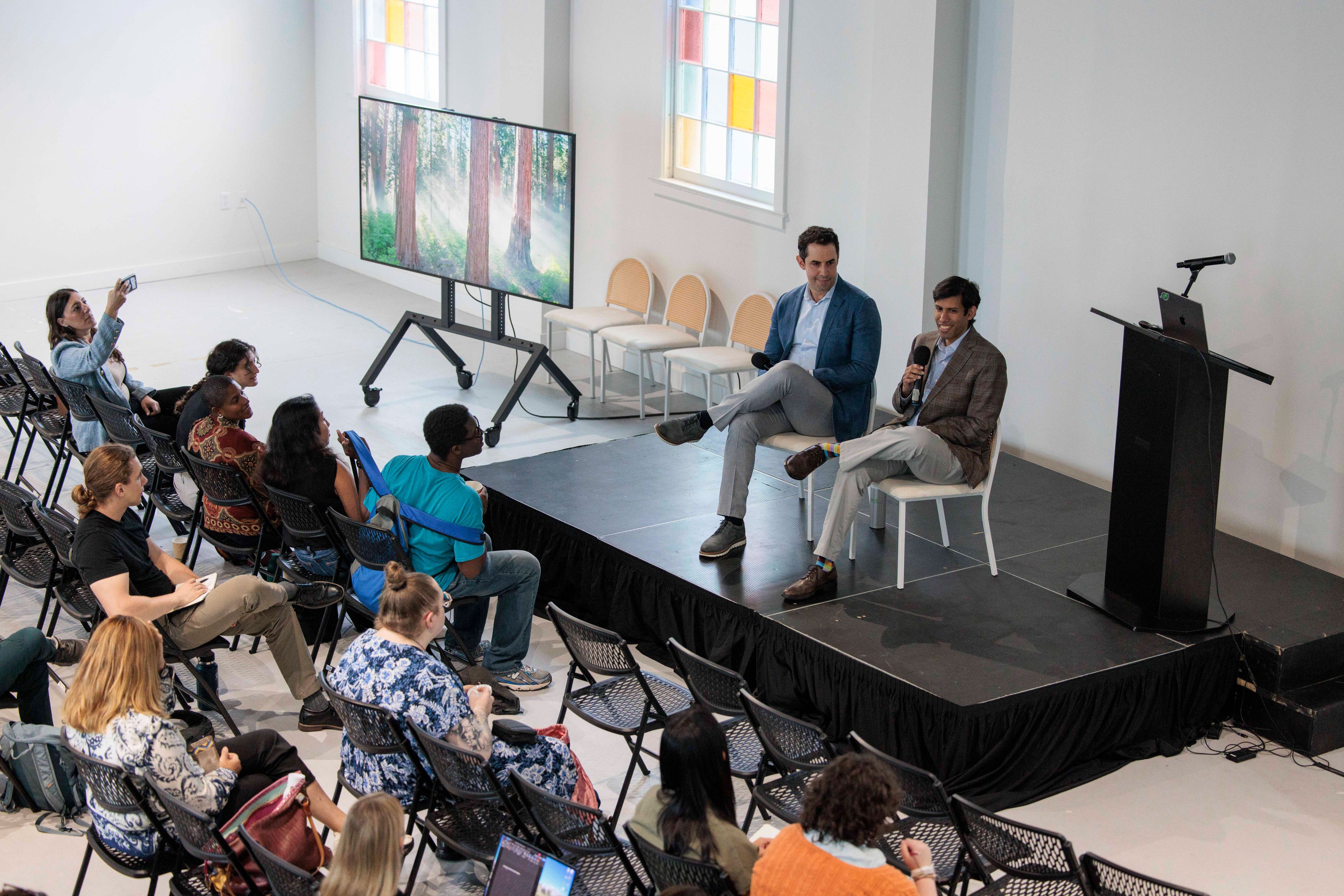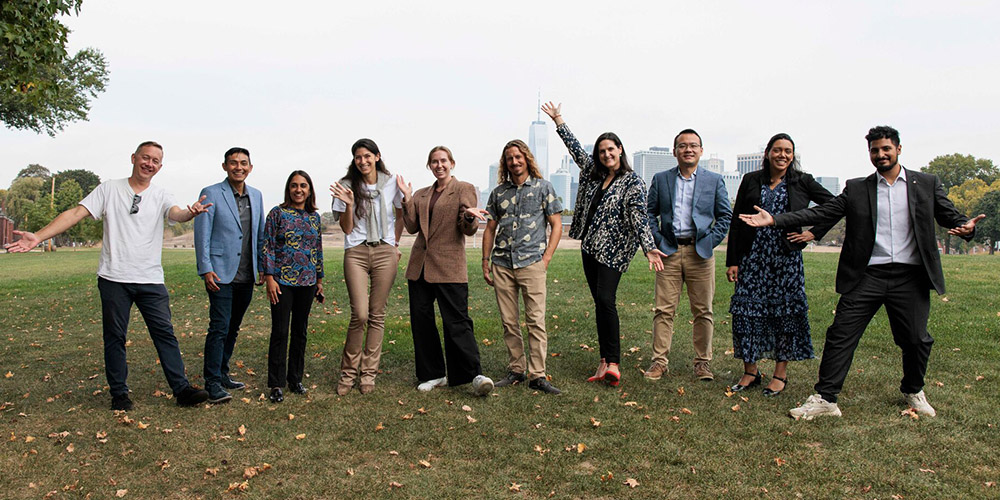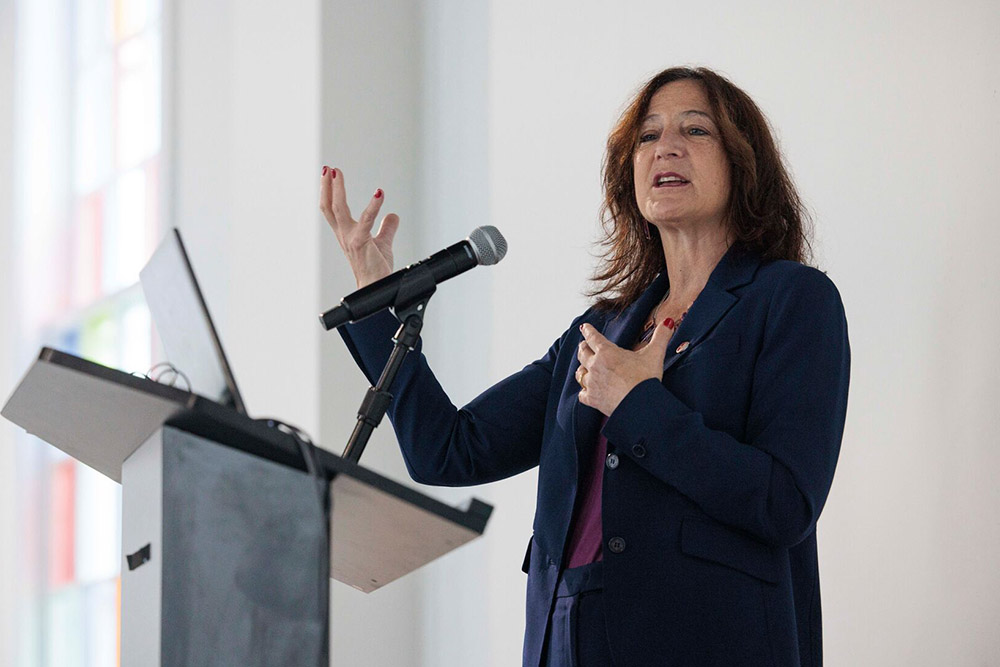
Stony Brook, NY, October 7, 2025 — Artificial intelligence is emerging as a vital tool in addressing the world’s most pressing climate challenges — a recurring theme explored at The New York Climate Exchange’s inaugural Climate Tech Showcase, held September 24 on Governors Island during Climate Week NYC.
The event brought together researchers, entrepreneurs, and industry leaders from across the Exchange’s university partner network to present cutting-edge technologies for a more sustainable future. From agriculture and energy to water management and wildfire response, AI featured prominently as both a driver of innovation and a bridge between data, science, and real-world impact.
Among the highlights was a fireside chat on AI and agriculture featuring Lav Varshney, Director of the AI Innovation Institute at Stony Brook University, and experts from IBM. The discussion explored how machine learning can transform global food systems, improving crop yields, reducing waste, and strengthening supply chains under climate stress.
“AI can help us see agriculture as a connected system — linking data from below the ground to beyond the clouds,” Varshney said. “When we integrate information about weather, soil, and logistics, we can guide every part of the food supply chain to make it more resilient and efficient.”
The conversation reflected the showcase’s broader message: that AI can accelerate climate adaptation by enabling scientists and policymakers to make data-informed decisions. Similar applications are taking shape across the Exchange network, including AI-driven energy grid management and real-time wildfire monitoring.

The event also introduced the first cohort of Climate Tech Fellows, a group of eight innovators developing technologies to address challenges such as grid resilience, hydrogen storage, and coral restoration. Several fellows are advancing AI-enabled solutions, including:
- Mauricio Hernandez, whose GridSeer platform uses AI to improve the reliability and sustainability of energy systems.
- Xiao Liu, who is applying data science and AI for real-time wildfire management and risk assessment.
- Stephanie Taboada, a chemical engineering Ph.D. candidate developing safe, scalable hydrogen storage systems to unlock the green hydrogen economy.
“There’s no question that climate is impacting our ability to sustain our cities — from flooding and grid failures to damaged coastal environments,” said Stony Brook University President Andrea Goldsmith, who chairs the board of The New York Climate Exchange. “Here on Governors Island, we have a sandbox to test urban resilience technologies and the partnerships needed to make them real.”

The Exchange’s emphasis on AI innovation extends beyond the fellowship. Earlier this year, a team of Stony Brook University students placed second in the AI Innovation Challenge, where eight universities competed to design solutions for New York City’s stormwater management issues. Their project, eFlood, uses artificial intelligence to help residents find safe and efficient routes during floods by integrating data from city sensors and 311 calls.
“The AI Innovation Challenge showcased the creativity and collaboration that define Stony Brook,” said Rong Zhao, Director of the Center of Excellence in Wireless & Information Technology (CEWIT). “Students worked closely with mentors and industry partners to develop solutions that have direct community impact.”
From precision agriculture and clean energy to flood navigation and wildfire management, AI is reshaping how scientists and engineers confront climate change. The Climate Tech Showcase demonstrated that innovation thrives where disciplines meet — and that Stony Brook University and its partners across The New York Climate Exchange are helping lead that transformation.

